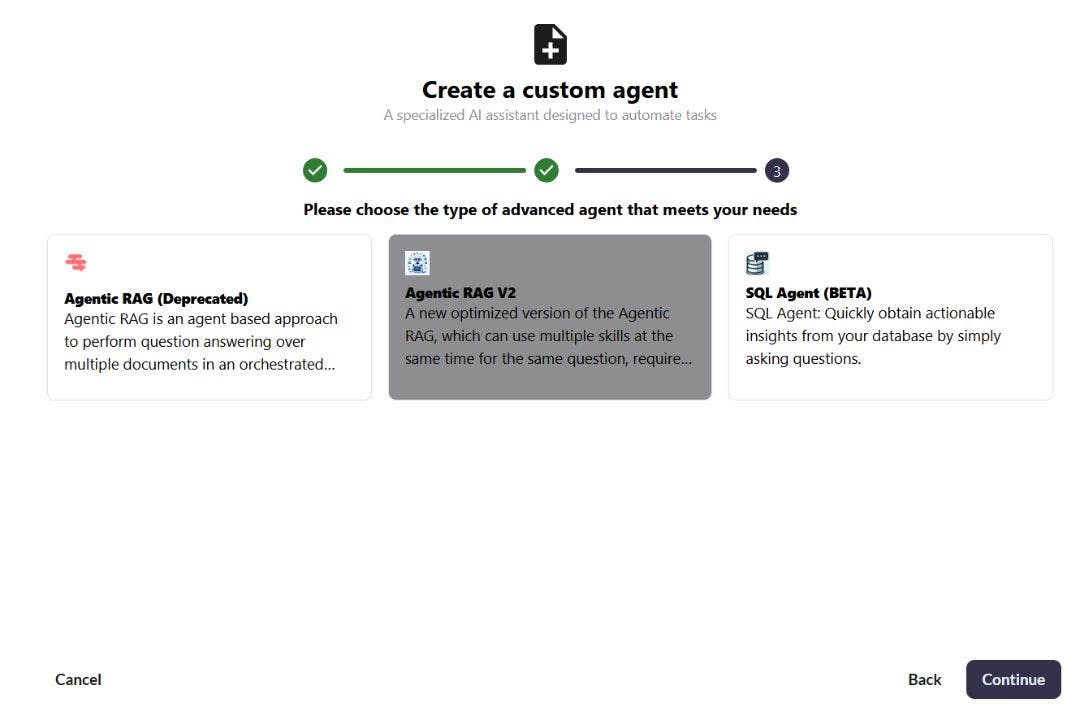Table of contents :
Evolution of AI and automation with agentic AI
Explore how agentic AI is redefining the future of software and artificial intelligence with self-learning and adaptability capabilities.
Ready to transform your business with AI?
Discover how AI can transform your business and improve your productivity.
What is agentic AI?
Agentic AI, an emerging branch of artificial intelligence, promises to redefine the future of software and automation. By integrating self-learning and adaptability capabilities, agentic AI transforms how businesses approach analytics tools, business insights, and automation.
Agentic AI goes beyond traditional automation by introducing intelligent agents capable of adapting to real-time changes. Unlike classic Robotic Process Automation (RPA), which follows pre-established paths, agentic AI operates similarly to an autonomous car, navigating through complex and changing situations.
Principles of agentic AI functionality
Agentic AI systems are designed to interact dynamically with their environment, using machine learning algorithms to improve their performance over time. These systems can understand and interpret complex data, enabling autonomous and contextual decision-making. Additionally, agentic AI is capable of self-learning, meaning it can improve without constant human intervention, making the software more robust and adaptive.

Advantages of agentic AI
1. Enhanced business insights
Agentic AI leverages data streams to provide real-time business insights. By combining contextual intelligence and self-learning, it allows businesses to make decisions based on accurate and up-to-date data. With advanced analytical tools, organizations can identify hidden trends and anticipate future needs, thus strengthening their competitive market position.
2. Intelligent automation
With agentic AI, automation is no longer limited to repetitive tasks. It evaluates, decides, and adapts, paving the way for more dynamic and intelligent processes. This reduces the dependency on human supervision for complex tasks, freeing up time for personnel to focus on higher-value activities.
3. Flexible integration
Agentic AI platforms, such as those developed by Salesforce, Microsoft, and Google, offer flexible integration with existing systems. They allow companies to modernize their infrastructure while preserving their previous investments. This flexibility is crucial for organizations seeking to adopt new technologies without disrupting their current operations.
Challenges of adopting agentic AI
While promising, the adoption of agentic AI is not without challenges. Integrating this technology requires a major technical overhaul and rigorous governance to ensure security and reliability. Companies must also ensure their personnel are trained to leverage the capabilities of agentic AI.
1. Complexity of integration
Integrating agentic AI into an existing environment can be complex. Companies often need to restructure their workflows and update their data management systems to adapt to this advanced technology. This requires investments in time and resources, as well as careful strategic planning.
2. Security and governance
Due to its autonomous nature, agentic AI raises concerns about data security and privacy. Companies must implement robust security protocols to protect sensitive information and ensure ethical AI usage. Governance should also include supervisory mechanisms to ensure that AI systems operate as expected and comply with regulations.
3. Training and skills
To fully benefit from agentic AI, companies must invest in training their personnel. It is essential for employees to understand how to interact with these intelligent systems and integrate their capabilities into daily operational processes. Developing skills in AI and data analysis thus becomes a priority for organizations adopting this technology.
Future of software with agentic AI
Agentic AI is redefining the software landscape by offering smarter and more adaptive solutions. It promises to improve operational efficiency, reduce costs, and increase companies' responsiveness to market changes.
Impact on various sectors
The adoption of agentic AI extends to various sectors, including healthcare, finance, retail, and manufacturing. In healthcare, for example, agentic AI is used to analyze medical records and provide accurate diagnostics, thereby improving patient care. In finance, it helps in fraud detection and risk management. Each sector leverages this technology to solve specific problems and enhance overall efficiency.
Towards continuous innovation
As agentic AI continues to mature, it will open new opportunities for innovation and growth. Companies adopting this technology now will be able to position themselves as leaders in their industry. Agentic AI is not just a technological advancement; it is the driving force behind a digital transformation that will redefine how businesses operate and interact with their customers.
Agentic AI represents a significant advancement in the field of artificial intelligence, with the potential to transform not only software but also how businesses operate. As technology continues to mature, it will open new opportunities for innovation and growth.
author
OSNI

Published
January 21, 2025
Ready to transform your business with AI?
Discover how AI can transform your business and improve your productivity.